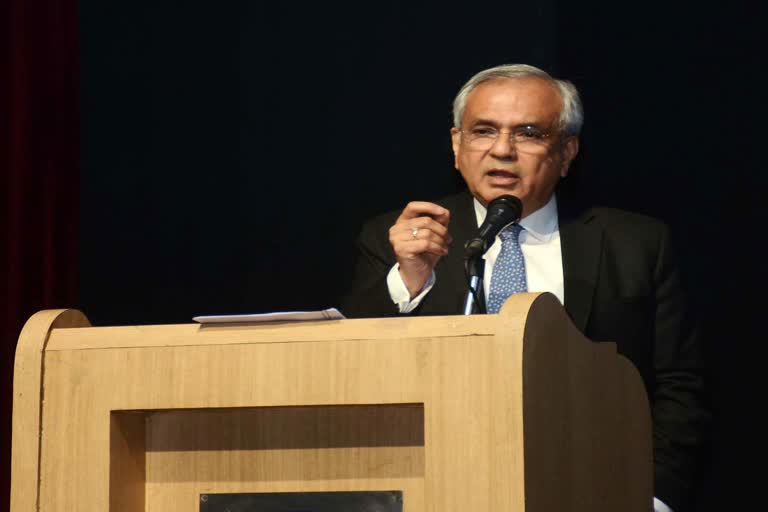New Delhi: The government should focus on alternate measures to stimulate the economy as it is not possible to give fiscal stimulus, Niti Aayog Vice-Chairman Rajiv Kumar said ahead of the Budget.
Kumar also said growth-enhancing measures are the need of the hour to achieve India's potential growth rate of 7-8 per cent per annum.
He attributed the current slowdown to low investment, muted consumption expenditure and lagging exports.
Experts are divided over whether the government should provide stimulus to boost slowing economy without bothering too much about fiscal deficit.
"Growth-enhancing measures are the need of the hour to achieve India's potential growth rate of 7-8 per cent per annum."
"However, the government's ability to finance a large stimulus is admittedly constrained. Therefore, attention will have to be on alternate measures to stimulate a recovery," Kumar said in a newsletter 'arthNITI'.
The Niti Aayog's vice-chairman noted that some green shoots of recovery are now visible with the Purchasing Managers' Index (PMI) for both manufacturing and services showing a smart rise to above 52, which signifies expansion.
Read more:Budget 2020: Agriculture seeks more investments
He also said there have already been plenty of measures taken by the government in the recent past, including the decision to lower corporate tax rates in September 2019.
"The equity markets have responded positively and strongly to these measures and recorded all-time highs. Still, all eyes are now on Budget 2020 for further growth-enhancing measures," Kumar said.
Noting that growth, equity and sustainability can no longer be viewed as mutually exclusive, he said, "We cannot achieve one goal while neglecting the other two."
Our policy design should, Kumar said, always have these three principle goals that are also enshrined in the Sustainable Development Goals (SDGs) or the Global Agenda 2030, for the achievement of which, all UN members have given their unequivocal commitment.
The Indian economy, which till recently was hailed as the fastest-growing major economy, has seen growth rate decline in each of the past five quarters, falling to over six-year low of 4.5 per cent in July-September 2019.
The National Statistical Office (NSO) has estimated the gross domestic product (GDP) in the current financial year at 5 per cent, which is 11-year low.
During the current year ending March 2020, the fiscal deficit target has been pegged at 3.3 per cent of the GDP.
However, there are apprehensions the government may miss the target in view of the slower economic growth and likely shortfall in revenue collection, mainly because of massive cut in the corporate tax rate.
Finance Minister Nirmala Sitharaman will present Budget 2020-21 on February 1.
( - A PTI Report)



